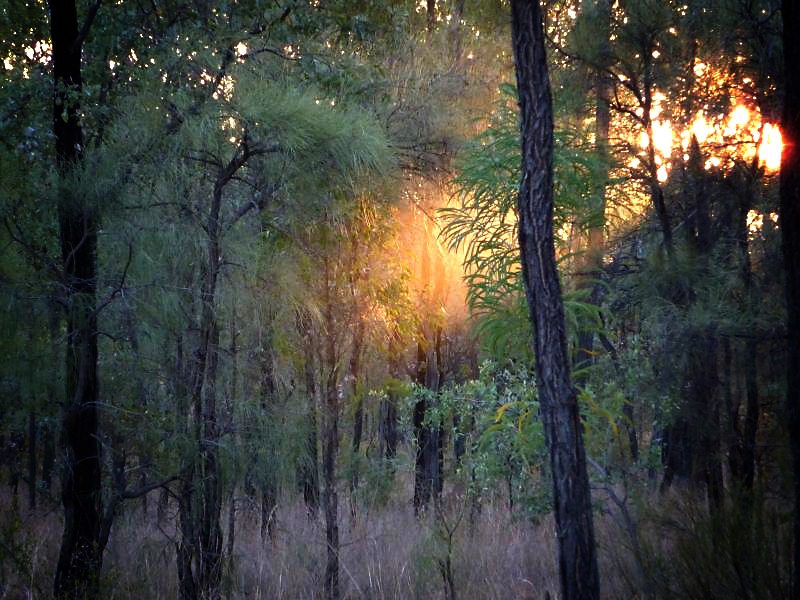2012 is the 50th anniversary of the publication of Silent Spring by Rachel Carson. The book, perhaps for the first time, put a very public spotlight on the devastating impact of chemical pesticides on the environment, particularly the aerial spraying of DDT in agriculture.
Blogpost by Ben Pearson, orginally posted on ABC Environment
Carson’s book unleashed the kind of backlash that environment groups face as a matter of course today. Her findings were attacked and the chemical giant Monsanto led a coalition of corporations which vilified Carson.
But in spite of this, her work played a major role in the banning of DDT by the US Government in 1972. It was a major victory.
For many, myself included, Silent Spring marked the beginning of the ‘environment movement’. It also showed how much difference one individual can make. And this is perhaps the most important thing to reflect upon on World Environment Day. It also brings to mind one of my favourite quotes from Margaret Meade, that “a small group of thoughtful people could change the world. Indeed, it’s the only thing that ever has.”
Over the past few weeks there has been a good deal of commentary about the failure of the environment movement. For me this is frustrating, because while big global meetings like the UN’s climate conference in Copenhagen were undoubtedly a failure, the last decades have seen a complete change in the way we interact with our environment.
Back when Rachel Carson published Silent Spring, protecting the environment was an anomaly. From our grandparents tossing rubbish out the car window, to corporations unashamedly pouring toxic waste into rivers, society viewed the natural world around us as something to be used and abused at will.
Today, while some companies – particularly in the fossil fuel industry – would probably be more at home in the 1960s, many others have embraced protecting the environment not just because of its value in itself, but also because it makes economic sense. Greenies still cop a lot of flak, not least for our enduring passion for sandals, but environmentalism has become mainstream.
Even Tony Abbott talks about the importance of protecting the environment. While the Coalition’s policies might not stack up, it shows the he recognises the importance placed on the issue by the community. It shows that environment cannot be ignored.
That ‘environmentalism’ has become mainstream is often levelled as a criticism, but I don’t see it that way. It is common sense that we should look after the world around us and protect it for future generations. This absolutely must be at the heart of the political debate rather than on the fringe.
But being mainstream doesn’t mitigate against individuals taking strong action, in fact, it provides context for it in a way that Rachel Carson never had in 1962.
Working with Greenpeace I have the privilege every day of speaking with individuals who are making a huge difference standing up for the environment both locally and globally. On World Environment Day in Sydney, Greenpeace is supporting the premiere of a film called ‘Bimblebox,’ which is about one woman, Paula Cassoni, and her battle to save a stunning nature reserve which stands between mining magnate Clive Palmer and the development of one of the world’s most destructive coal mines.
Bigger than any currently in operation in Australia, the mine will wipe out Bimblebox and its 220 plant and 150 bird species. As co-owner of Bimblebox Nature Refuge, against the odds, Paula is standing up to the coal industry and drawing a line in the sand.
And it’s a vital line, and not just for Bimblebox. Palmer’s mine is one of nine proposed in Queenland’s Galilee Basin. With proposals in place to dig up around 330 million tonnes of coal a year, Galilee has the capacity to export more coal than the rest of Australia put together in 2011.
A vast amount of coal will require a vast amount of new infrastructure, including a 500 kilometre rail line through farmland and the development of the world’s biggest coal port at Abbot Point. And that’s all, of course, in addition to the millions of tonnes of greenhouse gases that the burning of the coal will produce at exactly the moment when we desperately need to be reducing global emissions.
The scale of the challenges facing the environment can lead people to feel that they can’t do anything. But the opposite is true. Back in the 1960s, Rachel Carson did something out of the ordinary and she did it almost on her own. Today, individuals like Paula Cassoni are standing up, but they are doing so as part of a society which has deeper respect to the natural environment. The Galilee Basin and the protection of our Great Barrier Reef will be one of the biggest environmental battles in our history. And fight it we will.
We all can make a difference and if we want to safeguard the world around us, we must. This is what we should remember on World Environment Day.
Ben Pearson is Program Director for Greenpeace Australia Pacific.



